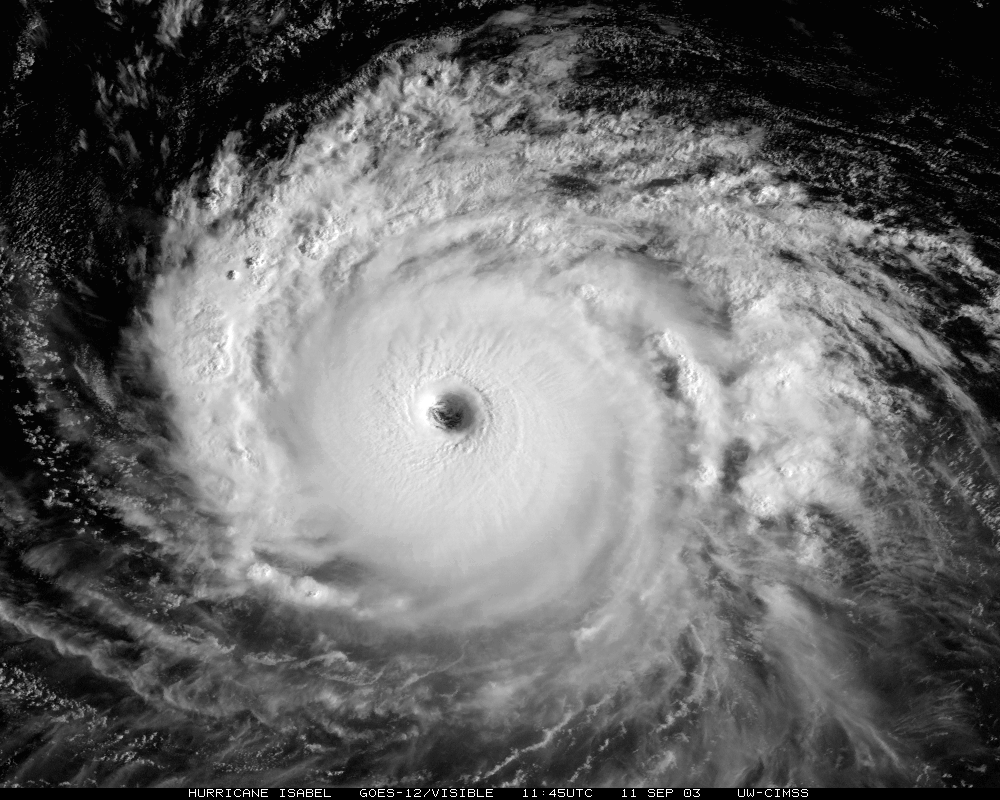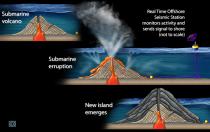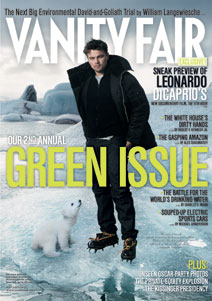- HOME |
- PEOPLE |
- RESEARCH |
- PUBLICATIONS |
- NEWS AND EVENTS |
- SEMINARS
2007 Archived News and Events
 ESSC Scientists part of Nobel-winning IPCC panel
ESSC Scientists part of Nobel-winning IPCC panel
The 2007 Nobel Peace Prize has been awarded to former Vice President Al Gore and the Intergovernmental Panel on Climate Change.
Read more>>
Response from the scientists >>
ESSC Scientists comment on the 2007 IPCC report
Dr. Richard Alley, one of the lead authors of this year's report, and Dr. Michael Mann, a contributor to past reports and reviewer of this year's report, both comment on the findings in the first part of the 2007 Intergovernmental Panel on Climate Change report.
Read more>>
Researchers travel to study climate change
Two groups of students from Penn State have left for Antarctica to study various aspects of climate change on that continent. Dr. Richard Alley, Dr. Michael Mann, and Dr. Klaus Keller all comment on why studying the ice sheets is important for understanding the effects of global warming and how global warming may affect Pennsylvania.
Read more>>
 Past hurricane counts accurate
Past hurricane counts accurate
Dr. Michael Mann and his student Thomas Sabbatelli have examined the hurricane and tropical storm counts back to 1870 and determined that the counts are largely reliable, disputing earlier claims that the counts may be underestimating by as much as 3 storms per year. This research is presented in a paper published in Geophysical Research Letters. Image Credit: UW/CIMSS
Read more>>
Read the paper (PDF) >>
It takes a town
The Boston Globe looks at towns' efforts to combat climate change locally, including changing from incandescent bulbs to LEDs and other ideas. Dr. Richard Alley comments on the global aspects of climate change and the potential pace of melting ice sheets and rising sea level.
Read more >>
Alley and Arthur named AAAS fellows
ESSC's Dr. Richard Alley and Dr. Michael Arthur have both been named fellows of the American Association for the Advancement of Science (AAAS). They will be recognized at the AAAS Annual Meeting in February.
Read more >>
Students, faculty discuss university energy conservation
Dr. Richard Alley was the keynote speaker at Penn State's "Forum for the Future: An Energy and Environment Discussion." The focus of the symposium was to educate students and faculty about the carbon footprint of Penn State and ways they can help cut energy use. The Daily Collegian summarizes the day's events.
Read more >>
 PSU earth scientists part of Nobel Peace Prize-winning UN climate change panel
PSU earth scientists part of Nobel Peace Prize-winning UN climate change panel
The UN's Intergovernmental Panel on Climate Change (IPCC) shared the 2007 Nobel Peace Prize with former Vice President Al Gore. Several members of the ESSC were instrumental in preparing the 2007 assessment as well as previous reports from the IPCC. Dr. Richard Alley, Dr. Michael Mann, Dr. Klaus Keller, and Earth and Mineral Sciences Dean William Easterling were among Penn State's contributors to the IPCC.
Read Penn State's press release >>
Read/Watch the announcement >>
Read the scientists' responses >>
Scientists Hopeful Despite Climate Signs
Climate scientists are viewed as pessimists, but this article shows several scientists, including Dr. Michael Mann, who are hopeful about the future. These scientists believe that the world will rally behind the cause of global warming and start to mitigate the effects of climate change.
Read more>>
Global collaboration gaining strength, moving ahead
Dr. Lee Kump celebrates the Worldwide Universities Network (WUN) and the collaborative effort of climate scientists to tackle some of the fields most difficult problems. The WUN is a partnership between several universities, including Penn State, to foster collaboration in many different fields.
Read more>>
 Volcanoes key to Earth's oxygen atmosphere
Volcanoes key to Earth's oxygen atmosphere
The transition of Earth's atmosphere from oxygen-poor to oxygen-rich was caused by a switch from underwater volcanoes to a mix of underwater and terrestrial volcanoes. Using biomarkers in rocks dating back to the Archaean and the Palaeoproterozoic eras, Dr. Lee Kump and his colleagues linked the submarine and terrestrial volcanic record to the levels of oxygen.
Read more>>
Customized weather maps can avert disaster
A collaboration between Penn State and the National Weather Service has led to the development of software to help users identify conditions that may precede disasters like livestock deaths or forest fires. Dr. Bernd Haupt helped develop this software; a PowerPoint presentation about this work can be found on his web site.
Read more>>
Geotimes Profiles: Gavin Schmidt and Michael Mann
Carolyn Gramling of Geotimes presents this discussion with the creators of RealClimate.org, including Dr. Michael Mann.
Read more>>
Big storms double since last century
Discovery News tackles a recently published journal article about the increasing frequency of tropical cyclones in the North Atlantic in the last century. Dr. Michael Mann comments on the article and correlation of rising sea surface temperatures to tropical cyclone activity.
Read more>>
Clues to Rising Seas Are Hidden in Polar Ice
The Washington Post tackles the issues of predicting ice sheet dynamics and rising sea levels by interviewing several prominent glaciologists, including Dr. Richard Alley. Dr. Alley details some of the challenges and uncertainties in sea ice dynamics.
Read more>>
Heating Up
State College's local magazine Town and Gown featured a story about global warming from the viewpoints of local experts, including Dr. Michael Mann. Read the full story in the July 2007 edition.
Read excerpt here>>
Smithsonian accused of altering exhibit
A Smithsonian exhibit on climate change in the Arctic was changed last year to minimize the connection between climate change and human activity. Comments from Dr. Michael Mann include a comparison of the climate change debate to a similar debate about evolution.
Read more>>
Emissions targets hot topic at climate conference
Delegates at May's climate change conference in Bangkok, Thailand, debated the controversial issue of emissions caps. The final report argued that greenhouse gas levels must be stabilized by 2015 in order to limit the amount of global warming. Dr. Michael Mann comments on the 450 ppm threshold.
Read more>>
Why Files: Melting ice, rising seas, is anybody ready?
The Why Files presents comprehensive look at the issue of melting ice sheets and glaciers and the possible impact on global sea level and low-lying coastal areas. Dr. Richard Alley explains that there is a great deal of uncertainty on how much sea level rise we can expect to see from global warming. He also delineates the type of research needed to better quantify the response of ice sheets to climate change.
Read more>>
More Forecasts of an Active Atlantic Hurricane Season
Science blogger Chris Mooney reports on predictions of another active hurricane season in the North Atlantic. He also points to an upcoming paper in the Journal of Geophysical Research-Atmospheres from Mr. Thomas Sabbatelli and Dr. Michael Mann on a new tropical forecasting method which takes into account both sea surface temperatures (SSTs) and the state of the El Nino-Southern Oscillation (ENSO).
Read more>>
 A Convenient Untruth
A Convenient Untruth
Vanity Fair's "Green Issue" for May 2007 features this article where various scientists and experts, including Dr. Michael Mann, respond to comments from climate change skeptics. Dr. Mann responds to various criticisms surrounding the "hockey-stick" graph of temperatures over the past millennia. The ESSC is also mentioned as a resource for this "Green Issue."
Read more>>
Conservative Climate: Consensus document may understate the climate change problem
The recent report from the Intergovernmental Panel on Climate Change (IPCC) may underestimate the effects of climate change, according to experts interviewed in this article in Scientific American. Dr. Richard Alley discusses the complexities of trying to quantify effects such as the melting of Greenland's ice sheet in climate models.
Read more>>
Is Earth near its 'tipping points' from global warming?
USA Today reports on potentially devastating impacts of climate change on the planet based on the recent report from the Intergovernmental Panel on Climate Change (IPCC). Dr. Michael Mann cautions that the report's conclusions may be a bit conservative, since it lacks input from groundbreaking research from the last several months.
Read more>>
Markowski receives 5-Year NSF Career Award
Dr. Paul M. Markowski, Assistant Professor of Meteorology, recently received a 5-year NSF Career Award. The title of the project is "A Study of the Radiative Effects of Cloud Shadows on the Dynamics of Long-Lived Convective Storm." The project will study how thunderstorms are affected by large regions of cool ground temperatures produced through the "cloud-shading" effect of the storms themselves. An NSF Career Award is a highly selective grant given to new faculty members believed to be the next generation of academic leaders.
Fits and Starts: What regulates the flow of huge ice streams?
Dr. Sridhar Anandakrishnan weighs in on the various factors that can affect ice stream flow in Antarctica. Recent research has highlighted certain effects like sedimentation, water under the ice, and tides. Science News interviews Dr. Anandakrishnan and others on the ice stream flow rates.
Read more>>
Antarctic Science: The World from the Bottom Up
Dr. Richard Alley is interviewed in this article about Antarctic Science from the March 29, 2007 edition of the Economist (subscription required).
Read more>>
Scientists debate the influence of solar activity on observed warming
In this article from LiveScience, the debate over solar activity and global warming is presented. Astronomers have noted warming trends on other planets, leading them to speculate that Earth's warming is also influenced by increased solar activity. Dr. Michael Mann counters that changes in solar activity accounts for a small fraction (less than 1%) of Earth's warming.
Read more>>
Sediment wedge key to glacial environmental stability
Dr. Richard Alley and Dr. Sridhar Anandakrishnan highlight their recent Science Express articles about sedimentation under ice sheets in Antarctica. The results published in these papers may be key to understanding the effect of climate change and sea level rise on existing ice sheets and glaciers.
Read more>>
Accu-Weather's Headline: Earth profiles Dr. Michael Mann
Accu-Weather's Global Warming Center hosts blogs and videos about the latest climate change headlines and interviews prominent scientists. Watch this week's video clip to see an interview with Dr. Michael Mann.
Read more and watch video>>
Earth & Sky Clear Voices: Dr. Michael Mann
The first in a series of audio interviews with scientists on newsworthy topics features Dr. Michael Mann. He answers questions on global warming, paleoclimate, and the "hockey stick" graph.
Read more and Listen to the interview >>
 ESSC scientists comment on the 2007 IPCC Report
ESSC scientists comment on the 2007 IPCC Report
A collection of News Items related to the 2007 Intergovernmental Panel on Climate Change (IPCC) climate assessment can be found here. Dr. Richard Alley is a lead author on this report, and Dr. Michael Mann comments on the report as a climate expert and contributor to previous IPCC assessments.
Read more>>
Researchers author chapter on “Ensuring the future of the oceans”
Dr. Bernd Haupt has authored a chapter with Maurie Caitlin Kelly in the recently published Companion Encyclopedia of Geography: From Local to Global, 2nd edition.
Read more>>
Nation wakes to cold reality after balmy start
CNN discusses the unusual and quickly changing winter weather across the US. Now that winter is settling to many places across the country, many are seeing the difference between climate and weather. Dr. Michael Mann comments on some of the recent weather.
Read more>>
Is Warm January a Sign of Good Luck, or Bad Times?
Robert Seigel from NPR's All Things Considered interviews Dr. Michael Mann on the causes of the unseasonably warm winter and warmest year ever. Dr. Mann discusses how blaming the warm winter solely on El Nino may not be painting a complete or accurate picture of the climate.
Read more or Listen to interview >>
RealClimate post >>
The warmest year ever
Several news outlets posted reports and analysis on the news from NOAA that 2006 was the warmest year ever. This article from the Los Angeles Times/Chicago Tribune newspaper group features comments from Dr. Richard Alley and Dr. Michael Mann on the global warming implications of the latest news.
Read more>>
March in January! Or Is It Mayday?
Joel Achenbach, science reporter for The Washington Post, comments on the early January record warmth in the Washington area. While most casual observers wonder about potential global warming implications, Dr. Richard Alley cautions readers against equating weather and climate.
Read more>>
The Ununited States, When It Comes to the Weather
Recent record snowstorms in the Great Plains and Rocky Mountains while the eastern seaboard experience spring-like record warmth has demonstrated how different parts of the United States can have differing opinions on the state of climate due to local weather conditions. The New York Times examines this issue, interviewing Dr. Michael Mann and others.
Read more>>
Ancient global warming was jarring, not subtle, study finds
The Los Angeles Times takes a look at a recent study published in Science which shows that past climate changes were abrupt rather than gradual. These scientists have studied the late Paleozoic period, which Dr. Lee Kump describes as a period that can provide insights for our future climate.
Read more>>

